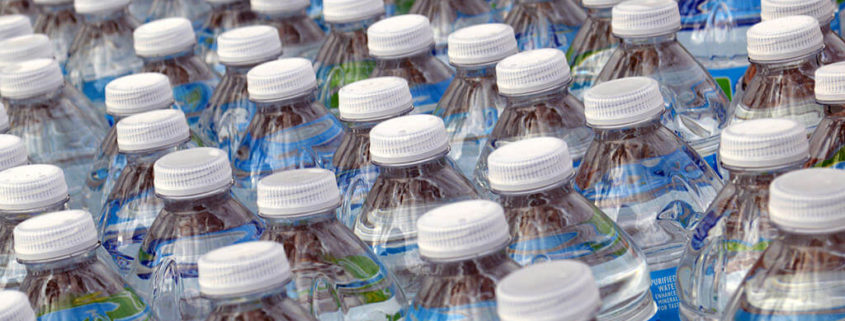People may store water for various reasons: in the case of emergency, to avoid shopping more frequently, to use in their garden or to save money spent on store-bought water to name a few. You may have thought that any container will act as enough of a barrier from toxins and bacteria, that if you store it in a cool, dry place and drink it within an allotted time frame the water will always be safe. Here are things you want to know before beginning to store your own water at home.
Water is Best Stored in Certain Plastics
Water bottle companies and rain barrel makers have the right idea when choosing specific plastics to store water safely. The types of plastics are numbered and the safest for water is #1, #2 and #4. To find out if your containers are one of these three plastics, look for the recycling symbol on the bottom and the number inside it that indicates its plastic type. These plastics are polyethylene based and make the best plastics because they are UV-resistant and food grade. Added benefits of some containers can be non-translucent blue, a color that resists the growth of bacteria and light exposure and indicates by color that it’s safe for human consumption.
Furthermore, drinking water is best from glass containers because they contain none of the chemicals or potentially dangerous materials that plastics contain and can be 100% recycled until the end of time. More importantly to some, the container will not contain any flavors from its previous contents.
Water Containers Should Be Stored Away From Chemicals and Off Concrete
Water should be stored in a cool, dry place, but not any cool, dry place will do. The first thought for many is to store their water in the garage where you have an abundance of space for it. This idea is swell, as long as you place your containers atop some wooden planks to keep it off the ground or concrete. The truth about storing your water in plastics, even the safest plastics is that the porous material can leach in any surrounding substances, inside or outside the bottle. The container can absorb oil, gasoline and even components of your concrete. It can also absorb any flavors, scents or components of anything that was ONCE inside the bottle, so putting your water inside an old soda bottle will taint the water with remnants of soda even if you’ve thoroughly cleaned it.
Water Doesn’t Expire
Fortunately for mankind, water does not “go bad” like food does. For peace of mind you can rotate the water or replace it every 6 months or a year, but it is not necessary. As long as you have picked appropriate containers, sealed them properly and kept them from anything that could leach inside through a plastic you will be just fine. In the case of an emergency, there are ways to purify the water again by boiling it or using bleach. Please do your research before consuming any water you might think has been contaminated in the slightest.
Water is an essential to human life and the first thing you might consider when preparing for an emergency or just making daily life run more smoothly for you and your family. The recommendation for emergency water storage is optimally 2 weeks worth and 1 gallon per day kept for each person. For a couple, 1 gallon kept x 2 for 14 days would be 28 gallons of water. The minimum recommendation is three days worth if that seems more plausible for you and your space!



